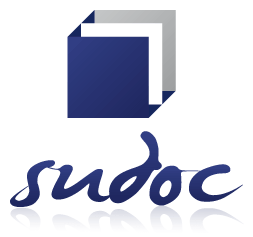Exploring the Legacy of Ancient India Cultural, Scientific, and Socio-Political Contributions to World Civilization
DOI:
https://doi.org/10.63053/ijrel.43Keywords:
Ancient Indian Civilization;Vedic Philosophy;Cultural Contributions;Scientific Advancements;Global ImpactAbstract
This study explores the remarkable achievements of ancient India, focusing on its enduring impact on global thought and practices. From the philosophical insights enshrined in the Vedas and Upanishads to the revolutionary scientific advancements in mathematics, astronomy, and medicine, ancient India emerged as a beacon of intellectual brilliance. Concepts such as zero, the decimal system, and advanced astronomical calculations influenced civilizations across Asia, the Middle East, and Europe, forming the foundation for modern science and technology. Culturally, ancient India introduced transformative ideas of spirituality, yoga, and meditation, which continue to inspire holistic health and mental well-being worldwide. The philosophical principles of dharma, karma, and non-violence, as seen in Hinduism, Buddhism, and Jainism, have resonated globally, shaping ethical and moral frameworks across cultures. The socio-political structures of ancient India, including democratic assemblies and the Varna system, offered models of governance and societal organization, albeit evolving over time.This exploration reveals how ancient India's legacy transcends time, fostering intercultural exchanges and providing timeless wisdom that addresses contemporary challenges, from sustainability to global harmony. By examining this rich heritage, we celebrate ancient India's unparalleled contributions to humanity's collective progress.
References
Majhi, L. (2024). Exploring The Significance of Sanskrit Literature In Shaping Of The Indian Knowledge System. Partners Universal International Innovation Journal, 2(3), 103-114.
Khilnani, N. M. (1993). Socio-Political Dimensions of Modern India. MD Publications Pvt. Ltd.
Biswas, R. (2024). EXPLORING INDIGENOUS KNOWLEDGE SYSTEMS OF EDUCATION IN ANCIENT INDIA: A COMPREHENSIVE STUDY. NEW TRENDS OF TEACHING, LEARNING AND TECHNOLOGY| VOLUME 2, 161.
Singh, J. K. (2021). Colonization Of Personality Psychology in India: Historical Roots And Contemporary Status. Indian Journal of History of Science, 56(2), 115-130.
Farooque, U. (2023). " HOLISTIC HORIZONS” Exploring Vedic Literature. Laxmi Book Publication.
Maisels, C. K. (2003). Early Civilizations of The Old World: The Formative Histories Of Egypt, The Levant, Mesopotamia, India And China. Routledge.
Ahmed, M. B., Ahsani, A. S. A., & Siddiqui, D. A. (2005). Muslim Contributions To World Civilization. International Institute Of Islamic Thought (IIIT).
Raza, H. G. R., Rehman, M. F. U., Kashif, H. M., Ajmal, M., Bilal, M., & Sohail, M. (2024). Exploring Alberuni's Legacy: A Critical Review Of “Kitab Al Hind”. Remittances Review, 9(2), 829-846.
Downloads
Published
How to Cite
Issue
Section
License
Copyright (c) 2025 Authors

This work is licensed under a Creative Commons Attribution 4.0 International License.













